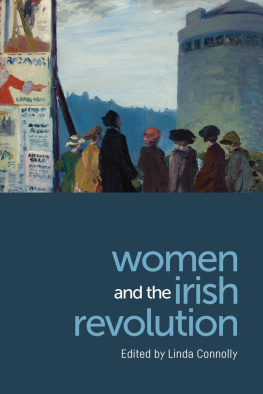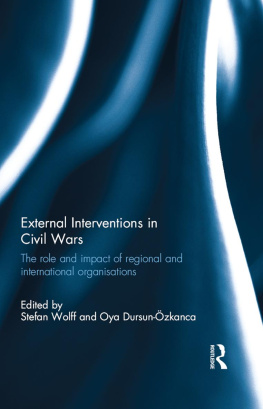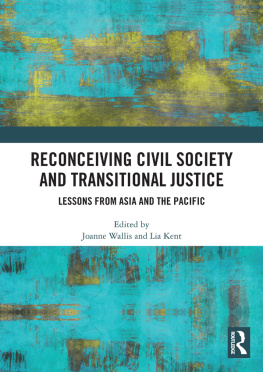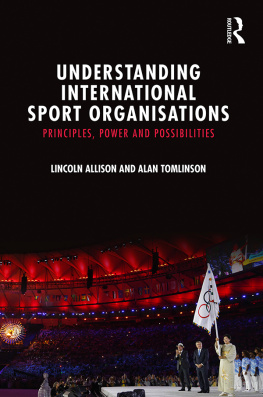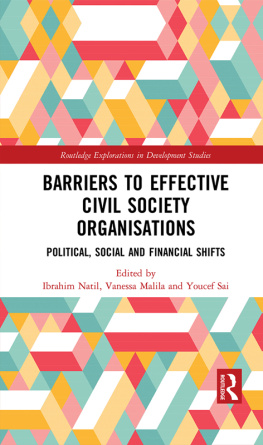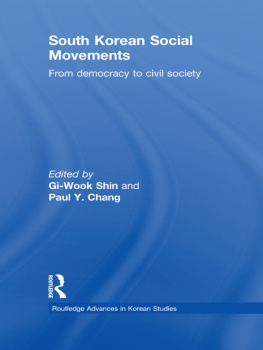Acknowledgements
This book and the dissertation that preceded it has been a gift; it has introduced me to so much inspiration in the form of people. First and foremost I wish to thank my friends and colleagues in South Korea. Professor Young Shin Park has been a kind, incisive, and incredibly generous adviser over the years. Seung-guk Choi, Eun Ae Choi, Sangmin Han, Myunghee Jeong, Haeae Kim, Jenam Kim, Ta-Kyun Kim, Ji Seon Koh, Kidon Lee, Michael Mo, Jae Cheul Seo, and many more people at Green Korea United taught and continue to teach me so much. This project would not have existed without the guidance and support of my senior and good friend, Yujin Lee.
Special thanks are also due to the Beautiful Foundation, CAC, Gonggam, Hope Institute, KWAU, and Nanum. I benefited greatly from the intellectual and social wisdom of B.J. Ahn, Peter Beck, Hee Yeon Cho, Myung-Rae Cho, Youngsook Cho, Yukyung Kim-Cho, Sang Il Choi, Chin-Seung Chung, John Frankl, Geon-Soo Han, Sun-Kyung Han, Joo Eun Hong, Michael Hurt, Tariq Hussein, Pil Kyu Hwang, Sohee Im, Amy Jang, Kee Yun Jeong, Yeon-Sik Jeong, Elisa Jun, Woong-Jung Jung, Sung-Goo Kang, Won-Taek Kang, Ae-Hwa Kim, Chong-Su Kim, Kim Choony, Kim Eun-Shil, Geo-Sung Kim, Kim Haejoang, Hank Kim, Jae Won Kim, Jae Yeol Kim, Joongi Kim, Mira Kim, Steven Kim, Yeonhee Kim, Kim Yeong Rae, Brenda Lee Kwon, Sanghun Kwon, Anselmo Lee, Changwoo Lee, Kyoung-Sook Lee Gu, Sanghun Lee, Antti Leppanen, Gil-Chin Lim, Jungkeun Lim, Jehong Lui, Moon Seok Jin, Sangmin Nam, Yunju Nam, Jeong Taek Oh, Kwan-Young Oh, Christian J. Park, David Hun Joo Park, Go Wun Park, Se-Il Park, Won Soon Park, Han-Kyun Rho, Hyun-Sun Seo, Si Kyung Seong, Ra-Mi So, Kyung A Shin, Matty Wegehaupt, Jin Ju Yang, Denise K.H. Yoon, Jung-Sook Yoon, Yoon Kwang Young, Jong-Il You, Richard You, Eugene Yun, Sun-chul Yun, and Suk In Yun.
My main adviser at Cornell, Annelise Riles, opened a new world of thinking and people to me. She pushed, nurtured, and pulled back to enable this work and the promise of future works. This work would not have been possible without the challenges she set or the vision she demonstrated. Hiro Miyazaki has challenged me from our first meeting together. This work would not have been possible without the patience or care he has shown from the start. Roger L. Janelli has quietly and confidently kept me focused on the significant things, both large and small. His knowledge, good humour, patience, and generosity have helped this project immensely. Stacey A. Langwick has reminded me of the stakes and provided a much welcomed spark. The more time goes by, the more I appreciate all that my committee did and did not do.
I wish to thank Arturo Escobar, Judith Farquhar, Bill Lachicotte, Don Nonini, Peter Redfield, Debra Skinner, and Silvia Tomaskova for first introducing me to anthropology at UNC-Chapel Hill. Judy and Peter in particular have given me so much over the years. I also wish to thank Debbora Battaglia, Tom Boellstorff, Don Brenneis, Tony Crook, Carol Greenhouse, Doug Holmes, Iris Jean-Klein, Michael Lynch, George Marcus, Bill Maurer, Kirin Narayan, Peter Redfield, Adam Reed, and Marilyn Strathern for providing generous and incisive feedback at key moments. Marilyn in particular has set an example as a person and as a scholar.
While at Cornell (200211), I benefited greatly from the collegiality of Brett de Bary, Hairhin Diffloth, Jane Fajans, Fred Gleach, Davydd Greenwood, David Holmberg, Billie Jean Isbell, Bernd Lambert, Mitch Lasser, Jane Marie Law, Mike Lynch, Kath March, Barbara Mink, Viranjini Munasinghe, Scott Peters, Nerissa Russell, Steve Sangren, Helene Schember, Suman Seth, Mike Shin, Jae-Jung Suh, Bill Trochim, Terry Turner, Amy Villarejo, Marina Welker, and Andrew Willford. Keith Hjortshoj and many others in the Knight Institute helped me tremendously not only to write, but also to teach.
I wish to thank Nancy Abelmann for being an invaluable mentor and inspiring guide about Korea and all things academic. Jae Chung, Chad Futrell, KoUn Kim, June Hee Kwon, Robert Oppenheim, Nan Youngnan Paik-Kim, and Jesook Song have also helped shape this work. In Kang, So Yeon Kim, Hyesoo Lee, Jae-il Lee, Kichul Kevin Lee, Sangyoup Park, and Joon Woo Sohn provided invaluable research assistance.
The Korea Foundation generously supported my field research (20056) and introduced me to Professor Hyuk-Rae Kim. I benefited greatly from my friendships with Helen Kim, Blaz Kriznik, Candice Lee, Beatrix Mesci, Taru Salmenkari, Seung-Heon Rhee, CedarBough Saeji, and Jeeeun Song during my fellowship.


